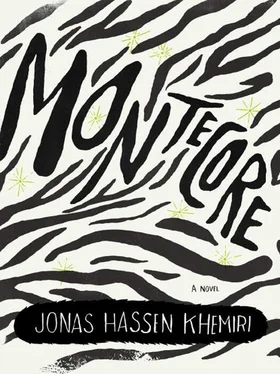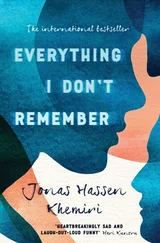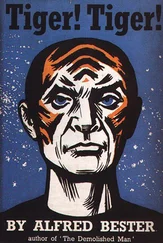“ ‘I believe that your father is alive … but under a modified identity in a secret place … ’
“My nervousness throbbed when I asked:
“ ‘And do you know which name is his name now?’
“ ‘According to the rumors, he names himself … What was it now … Ron Arm Stuntech. I think.’
“With the beating of my heart and my tongue sticky, I wrote the name on a scrap. Rachid leaned back and looked like someone who had settled the payment of a long debt. Before we …”
“Speaking of debt and payment …,” I interrupted your father.
“SHUT UP!” your father cried. “Do not interrupt me now! Before we separated our paths, I asked Rachid if he knew why my father had delegated me a chestnut that time we saw each other so many years ago. Rachid observed me with a sorrowful face.
“ ‘When you saw each other?’
“ ‘Yes, my father gave me a chestnut when he afflicted us in my childhood …’
“ ‘But … Your father never afflicted you. You have never spent time at any restaurant. He did not have any lifeguards. You must be remembering wrong. You must have fantasized that … Just like Haifa, you have perhaps been infected with that infection which has always characterized your family — the one where the forms of fantasy are given life in excess and in dangerous cases collide with reality.’
“ ‘But … then how do you explain this chestnut?’ I roared in desperation, and tore the chestnut from my pocket.
“ ‘Hmm … perhaps you found it yourself in your yard?’
“These words lurched my entire existence. Suddenly all the details of my life seemed to be suspiciously slipping and uncertain. What else could I have fantasized? What else can be untrue that is reality in my thoughts? In a last effort to find assurance I quieted my questions, localized Rachid’s body near mine, and eternalized us with a sequence of photos. After this we said our good-byes. Rachid wandered his steps back up toward the souk, waving a humoristic farewell with one of the turkey’s wings. Then he was gone. And I was alone with my confusion.”
“But not totally alone!” I placated.
“Actually, yes, Kadir. Totally alone.”
“But you have your family. And me!”
“Yes, but … who knows … Perhaps you are not real, either?”
We reflected each other’s pupils and then broke the silence with a tension-breaking laugh attack.
“HA HA! That was a humor that we can call extremely comical.”
Your father stuffed the paper scrap with his father’s alias in his wallet.
“What are you going to do now?”
“I don’t know,” your father said tiredly. “But if this is Moussa’s new name I should try to localize him. Sometime. In the future. A son and a father must never separate their relationship, no matter what the magnitude of conflict.”
Abbas and I passed four days’ nostalgia in Tabarka. We afflicted restaurants, summarized memories, joke-uttered our antique pickup routines. Your father did not sexualize any touristettes. Even if frequent invitations were given. Then your father informed me that he still lacked the capacity to repay me my economy. Then he said:
“But feel no doubt, Kadir. Success is waiting ‘around the corner,’ as one expresses in Swedish.”
Then we said our farewells.
You can conclude metaphorically:
“Without his family, Abbas felt holey in symbolic form. A little like the cheese that the Swiss eat on mountaintops in the company of yodely watch sellers and professional chocolate designers. Kadir noted a parallel emotion from never recovering his finances.”
As a farewell gift, your father delegated me a sagging envelope with photographs. In it were numberous photos of your steadily growing body, your cramped apartment, your mother with those gigantic seventies eyeglasses and her hippie shawl, your father’s growing record collection, your Swedish relatives’ country cottage. As well as a portrait where your father shared his company with his colleagues at the metro company SL. He was standing straight-backedly positioned in a coldly shining coffee room in his metro getup with a blue suit and pointed hat with the silver logo. The last photo made me a bit sorrowful. Your father’s mouth showed the sort of smile that most resembles a grimace.
Now it is up to you. Do you feel prepared? My hope is for your emphatically positive YES! So that you do not stray yourself in sidetracks, I propose to you to structure your memories as follows: Begin with your father’s homecoming and the information about your mother’s pregnancy. Then possibly something about “the dynamic duo.” What was this phenomenon, exactly? Your father mentioned it, but I never understood its exact meaning. Terminate the triangular section with the description of your brothers’ delivery and your grandfather’s tragic death.
So now you’re sitting there, just back from a reading in Södertälje, with a paper-wrapped bouquet and a book about rune stones by a local author. You read Kadir’s commentary and feel an aching sinking feeling in your stomach, the kind of sinking that says that this will never work, that you’re not ready, that instead you should concentrate on working more on one of the other projects. The ones where you devote time to thinking up plots, where the characters are just inventions, and a moderate amount of peripety can be injected in just the right place. And you have just finished writing the sentence when you realize that “inject” is Kadir’s word and not yours, that it’s his language that has started to influence you, and then your doubt gets even stronger. Because how good an idea is actually a collaboratively written book? 11You read his latest mail again and decide to give it yet another try. You take a deep breath and make use of his instructions …
Dads’ homecomings. There are so many. But this one must be when they came home in the spring of 1984. Moms have taken time off from their jobs as stewardesses even though of course they’re really “airborne people’s representatives of the overexploited service sector.” On the same day that Dads are supposed to come home you borrow Grandpa’s car and have a winter picnic by the lake Trekanten. You slide around on the ice together and play Bambi and drink hot chocolate way too fast from the thermos and so you get that special rough tongue that in Khemirish is called “picnic tongue.” Even though it’s wintery cold, Moms have green sunglasses, which are as big and round as boat windows, and over their hair are the thin shawls, which you can borrow and put over your eyes so the smell is Moms’ and your nose is coldly rough and the world is light blue with gold stripes. You can still see Moms’ contours where they’re standing farther away against the light, the world’s most beautiful Moms, who are taller than regular Dads and who have purses as big as hockey bags and always have to have their seats in the car as far back as they go to have room for their legs.
After refueling and candy buying you go back to nervously waiting Grandpa; you sit in front and are on police lookout while Bob Marley clunks himself out of the speakers and careless drivers roar-brake and taxis honk and bus drivers blink their headlights. Because Moms persist in driving at speeds that make the Toyota’s glove box open and sometimes Moms happen to signal left turns by turning on the windshield driers instead of the blinkers, and all the road signs are mostly like recommendations, and sometimes you drive one way for several blocks and sometimes you back out onto major roads and Moms just smile at shaking fists and honk back with a little melody. Then Moms continue to tell you about the order of power in the world. Everything in life is politics and nothing is a coincidence and that is why we will never fill up at Shell because they support apartheid in South Africa. To choose a party is politics and to choose gas is politics and to choose friends is politics and … Candy? you ask. Yes, even choosing candy is politics. Here, give me the bag and I’ll show you … You reluctantly hand over the bag of candy. If all this is the Western world’s money, then this raspberry boat is the poor world’s money. Do you understand? Injustice is everywhere; everything is power structures and nothing that we see in this corrupt society is real. Everything is imperialism’s damned attempts to keep us quiet. TV is opium for the people and your father is a bit of a dreamer, but you can never let yourself be fooled. And you quickly take back the bag of candy and say: But what about Dallath ? Because you watch that series together every Saturday. And Moms explain that Dallas is like a terrible warning about how the system of capitalism distorts people’s brains. And besides, that Bobby is a real hunk, Moms add, and laugh their bubbly laughs while you skid up onto the E4 highway.
Читать дальше










